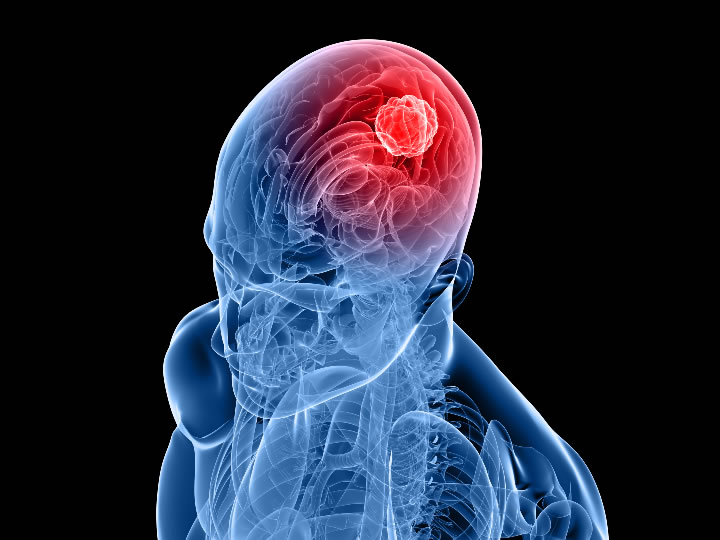A study by TFRI researchers investigating potential new drugs to treat glioblastoma (GBM) patients has identified an epigenetic-modifier drug which, taken in combination with standard chemotherapy, extends life in mouse models. Further, a second inhibitor that limits tumour growth and shows no toxicity to cells may also hold promise as a treatment therapy.
Evidence generated in this study, published in Oncotarget (July 2016), strongly suggests that drugs targeting epigenetic modifiers should be considered as candidate therapeutics for GBM.
Glioblastoma multiforme (GBM) is the most lethal and aggressive adult brain tumour with a life expectancy from diagnosis of only 15 months – and there are currently no effective treatments
Since epigenetic alterations are hallmarks of many tumours, including GBM, epigenetic modifiers have emerged as attractive targets for therapeutic intervention. Recently, Cheryl Arrowsmith (Princess Margaret, Toronto) and the Structural Genomics Consortium created a library of drugs that target various epigenetic modifiers and, for the first time for GBM, this library was used to identify candidate drugs that target multiple primary and highly tumourigenic GBM cell lines from patients.
One of the main issues with current drugs that inhibit epigenetic modifiers is that few can cross the blood-brain barrier and enter the central nervous system. The present study identified one that efficiently enters the brain, a class I HDAC inhibitor which, when taken in combination with the standard chemotherapy drug Temozolomide (TMZ), extended survival in mice models.
Further, the novel EZH2 inhibitor UNC1999 exhibited low micromolar cytotoxicity in vitro on a diverse collection of brain-tumour intiating cell lines (BTICs), synergized with the steroid medication dexamethasone (DEX). It was also found to suppress tumour growth in vivo in combination with DEX.
TFRI’s pan-Canadian GBM team comprises a cross-Canada collaboration of cellular and molecular biologists, geneticists, pathologists, chemists, pharmacologists, preclinical researchers, and drug discovery experts.

Study: Small molecule epigenetic screen identifies novel EZH2 and HDAC inhibitors that target glioblastoma brain tumor-initiating cells
Authors: Natalie Grinshtein, Constanza C. Rioseco, Richard Marcellus, David Uehling, Ahmed Aman, Xueqing Lun, Osamu Muto, Lauren Podmore, Jake Lever, Yaoqing Shen, Michael D. Blough, Greg J. Cairncross, Stephen M. Robbins, Steven J. Jones, Marco A. Marra, Rima Al-awar, Donna L. Senger, David R. Kaplan.
Funding: This work was supported by grants from the Terry Fox Research Institute and the Canadian Stem Cell Network.
Links#2